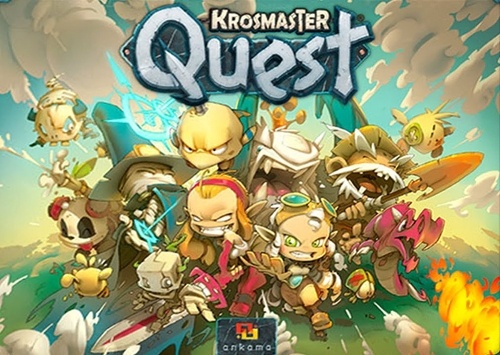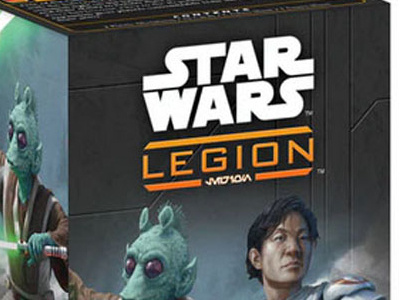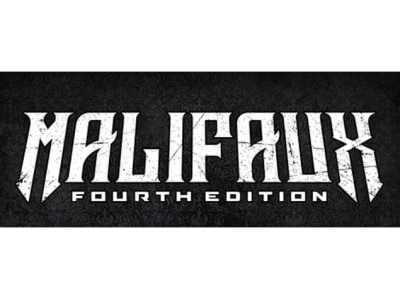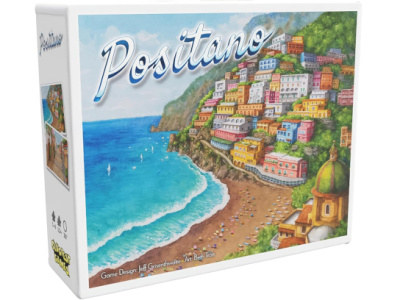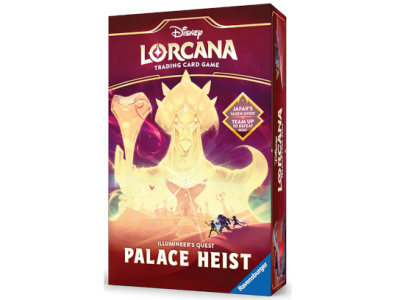Krosmaster: Quest
Publisher: CoolMiniOrNot/Ankama
Release Date: May 2016
Price: $89.99
Game Designer: N/A
Format: Board/Card game
Number of players: 2-6
Game Length: 120-180 minutes
Product #: KMQ001
Age Rating: 12+
ICv2 Rating: 2.5 stars out of five
This game has a ton of beautiful components. If the same care had been lavished on the game design and the rule book, it would have earned a full two points more in the rating.
The game, based on the Krosmaster system, has miniatures which can also be used in various other Krosmaster games, and a code which will let you use their virtual counterparts in the online version. These characters are attractively goofy, with diverse powers and abilities. You can also buy extra characters for use in the game, but these come in "blind" boxes, a marketing concept which means that you have no control over what figures you get, within a particular series. This game is based on "season two" of the game, and some stores are already trying to get rid of those, so cheap extras are available. Different characters might add to replay value, but there are so many other variables that this may not be necessary. Even the setup of the board, created by player consensus, is different each game, and there are many scenarios.
The game has a huge number of components, some of which must be assembled before each play session. While there’s a coolness factor in having 3D terrain features, this adds a lot of time to setup and teardown. For some players, this extra time will be more than the coolness is worth. Also, the smallest cardboard counters are problematic, being both tiny and round, creating worry if dropped.
Similarly, the cards and tokens must be sorted carefully, based on the scenario to be played, another time-consuming task. If you plan your next play session ahead of time, this can be done by the game’s owner, to avoid wasting everyone else’s time. Sorting a large deck at the start of a game session to replace one faction with another is not quick.
Once all this is done, players are faced with a combat system and a gather-the-goods style of play that works better in online gaming than while sitting around a table, because the first few turns of the game are consumed by obtaining goods to make the rest of the game possible to win. These early rounds consist of defeating weak monsters and harvesting wood, ore and other items needed to create needed weapons and armor. Unfortunately, it is quite possible for stronger monsters to show up before you’re ready to take them on. In a free-for-all game, there is also the potential for player vs. player attacks, not fatal to the loser but very annoying, and the strong quickly get stronger.
There is a "level" system which is not well-explained, and the text seems to assume that players are also familiar with other Krosmaster games and concepts.
Each player has a "dashboard" to hold his character card and possessions, and you have to pay to increase the size of your backpack, as well as reveal your powers. This "uncovering" section of the game is what makes it somewhat slow to play, as you have to acquire the goods to turn into the gold you need to make yourself competent in battle, to fight the creatures you need to defeat in order to equip yourself. During this time, the clock is running, and evil is slowly winning. So, optimistically, 2-3 hours of actual play, another 15 minutes each for setup and teardown at a minimum. That’s if you understand the rules.
The rulebook desperately needed better editing and proofreading, especially by someone who knew how to correctly use pronouns. A spellchecker was apparently used, but not understood, leaving incorrect words in odd places, and contradictions within the rules which must be interpreted. One simple concept, that attack die rolls are opposed by defense die rolls, is turned into two paragraphs of text which could be interpreted in multiple ways. One key sentence is turned into total gibberish by what appears to have been a bad cut-and-paste during translation from French, and an important page number reference sends players to the wrong page. The notes section of the scenario book should be used for writing down the errata as you find and clarify them.
Because of the quality of the components, there are players who will greatly enjoy playing this game. One player in our group had great fun just assembling the scenery. For the time commitment, though, many players will find it frustrating and insufficiently rewarding. The high price may also be discouraging, even though the price is based on the quantity and quality of the components.
--Nick Smith: Librarian Technician, Community Services, for the Pasadena Public Library in California.
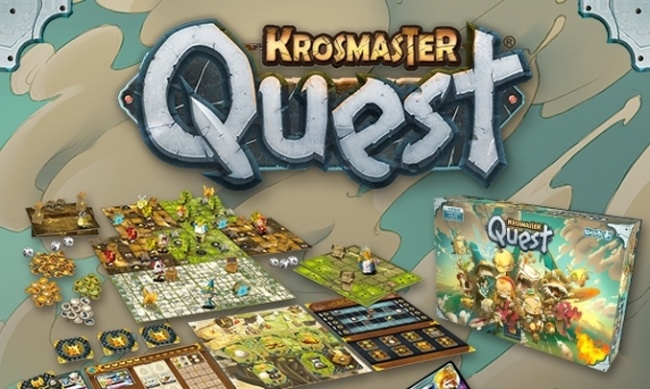
ICv2 Stars: 2.5 (out of 5)
Posted by Nick Smith on July 13, 2016 @ 3:12 am CT
MORE GAMES
New Clone Troopers Sets and Jedi General and Knight Set
July 15, 2025
Atomic Mass Games announced four new Star Wars: Legion miniatures expansion packs, for release into retail.
Scheme and Strategy Rules Receive an Update
July 15, 2025
Wyrd Games will release Malifaux 4E: Core Book for the popular horror miniatures game.
MORE REVIEWS
ICv2 Stars: 4 (out of 5)
July 11, 2025
Here's a review of Positano, published by Slugfest Games.
ICv2 Stars: 3.5 (out of 5)
June 20, 2025
Check out the review of Disney Lorcana TCG: Illumineer's Quest - Palace Heist, from Ravensburger.



